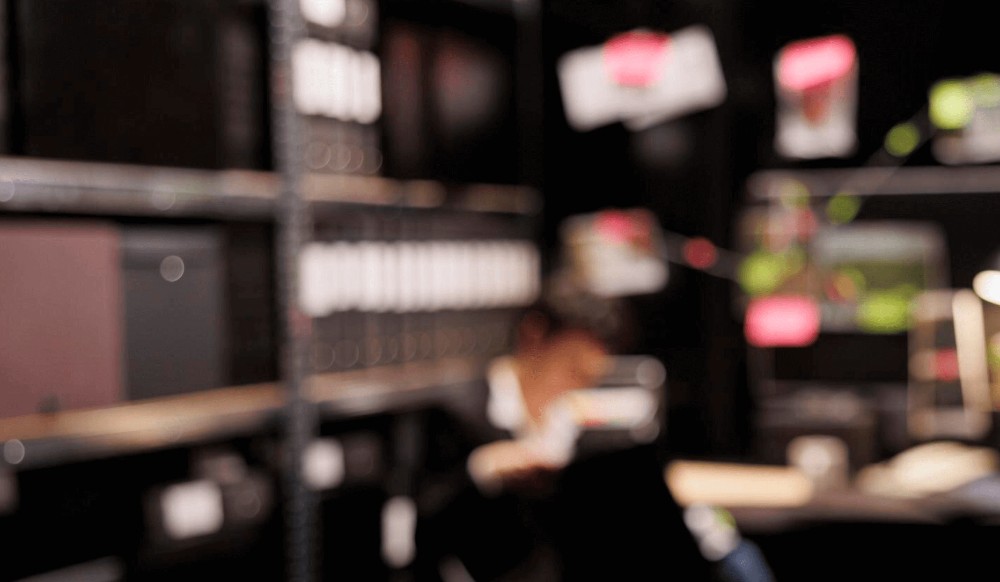I have been packing boxes between paragraphs, writing this series while selling my home—a process shaped by exclusion and the loss of stability that followed my children’s experiences in the Vancouver School District.
I approach this work from a lifelong love of data and technology, aware that the same tools I value can create harm when they ignore the human cost of being measured.
This post responds to BCEdAccess’s post about the Clear Room Tracker in Surrey. I write in admiration of their clarity and courage, hoping to reflect faithfully on their insights and the difficult truths they bring to light, meditating on what other thinkers have said on these issues.
-
BCEdAccess on Room Clear Tracker
The BCEdAccess post about the Surrey classroom-clear tracker is a dire and necessary warning. Parents are raising concerns that come from lived experience, not abstract theory. They have seen how data about vulnerable children, even when anonymised, can expose them to harm. Their argument is simple: tools meant to improve safety can easily become tools […]
Counting harm in the name of safety
The controversy surrounding the Surrey classroom‑clear tracker represents a microcosm of a much larger ethical debate in contemporary education policy: whether data collection can coexist with justice for disabled and marginalised students. As a parent of disabled children, I approach this question from both personal and structural vantage points. I have witnessed the ways that information about children’s distress becomes evidence for exclusion rather than catalysts for reform. The BCEdAccess response to the tracker offers an extraordinary case study in community‑led critique, articulating a disability‑justice analysis of surveillance, consent, and institutional accountability.
Surveillance masquerading as care
The Surrey tracker was ostensibly created to document classroom evacuations, known as “room clears.” Proponents described the initiative as a means to quantify crisis and advocate for safety.
Yet, as Sara Ahmed has argued, institutions often perform care in ways that reproduce exclusion. The tracker functions as a non‑performative act: it speaks the language of safety while enacting a logic of control.
Jasbir Puar names this dynamic the governance of debility—the use of bureaucratic injury to manage populations through vulnerability.
The BCEdAccess critique recognises this structure instinctively, rejecting the premise that quantification is synonymous with care.
Privacy, exposure, and the politics of visibility
Parents articulate a legitimate fear that anonymised data can still expose identifiable children. In small communities, the intersection of grade, date, and school creates re‑identification risk.
Protection of Personal Information when Reporting on Small Populations, a document from our own government, acknowledges precisely this danger, warning that aggregated information can endanger confidentiality when populations are small. Yet, government has abdicated their responsibility to ethically record and report data that would necessitate change to the circumstances that make these students vulnerable.
BCEdAccess families interpret these risks not as abstractions but as memories: they have seen privacy breaches lead to stigma, gossip, and informal exclusion. The emotional accuracy of their critique lies in this lived awareness that exposure always travels faster than empathy.
Legality, consent, and shared authority
Data collection in public education is not value‑neutral. Under FOIPPA s.26(c), personal information may be gathered only when directly related to an authorised program of a public body. District‑level parent councils hold no such authority.
Furthermore, the Office of the Information and Privacy Commissioner (2022) requires a Privacy Impact Assessment before any new collection begins.
The Accessible BC Act (2021) and DRIPA/UNDRIP (2019) embed the principle that communities most affected by policy must help shape it.
BCEdAccess’s demand for shared governance therefore aligns squarely with statutory and ethical norms: consent is critical.
Data without context as epistemic harm
Data without context is dangerous, parents remind us, and their warning resonates across social research ethics. The tracker’s structure privileges frequency over cause, severing events from antecedents.
A count of evacuations says nothing about staffing ratios, resource withdrawal, or trauma‑informed practice. The result is an epistemic distortion: distress is rendered as disorder rather than evidence of neglect.
This mirrors the finding in Moore v. British Columbia (Education) (2012 SCC 61) that equality requires access to means, not simply to space.
Counting evacuations without addressing underlying supports (staffing, trauma-informed practice, etc.) is like granting “access” without providing the means to succeed. Both expose how systems mistake visibility for equity.
Quantification, punishment, and the political economy of safety
The BCEdAccess analysis extends a long tradition within disability studies that reveals how the state transforms crisis into data to rationalise coercion, converting distress into a bureaucratic instrument of control. Metrics of disruption often channel funding toward surveillance technologies, isolation rooms, and disciplinary protocols that amplify vulnerability instead of cultivating safety.
This enactment of policy through injury exemplifies what Jasbir Puar theorises in The Right to Maim (2017) as the politics of debility—the deliberate production and regulation of bodily harm as a mechanism of governance.
Reputation, segregation, and soft exclusion
When schools become publicly associated with frequent evacuations, stigma moves through communities with the precision of contagion. The designation of a school as “unsafe” reverberates beyond the immediate crisis; it reshapes the social ecology of the institution. Families with greater access to mobility, social networks, and cultural capital often withdraw their children, taking with them the volunteer labour, fundraising capacity, and informal advocacy that once buffered the school from austerity. Those who remain are disproportionately low-income, racialised, or disabled, and their continued presence becomes misread as both symptom and cause of dysfunction.
Roger Slee names this process soft segregation: a subtle reorganisation of privilege and disadvantage that occurs under the guise of preference and safety. It is sustained by policy frameworks that tie school funding and credibility to enrolment and performance metrics, rewarding flight while penalising loyalty. Over time, reputational decline becomes self-fulfilling—resources contract, staff turnover accelerates, and the very students who most require stability inherit the instability produced by others’ departures. Stigma thus operates as a mechanism of exclusion, enforcing inequity through perception rather than decree, transforming the rhetoric of parental choice into an instrument of systemic abandonment.
Data from the BC Family and Student Education Survey (BCEdAccess et al., 2020) illustrate this phenomenon vividly: hundreds of families reported withdrawing from public in-person schooling during the pandemic, a movement the authors warned would “significantly impact inclusive education provincially.” In districts such as Surrey, where school choice intersects with rapid growth and uneven access to resources, this reputational flight compounds inequities, rewarding mobility and punishing commitment.
Stephen Ball’s analysis of neoliberal education reform reveals how metrics evolve into reputation and reputation into power. The Fraser Institute’s Report Card on BC Schools exemplifies this reprehensible transformation: a ranking apparatus that translates complex social and pedagogical realities into marketable hierarchies. Within this performative economy, initiatives such as the Surrey room-clear tracker replicate the same logic, converting crisis into currency.
The BCEdAccess survey demonstrates how families absorb these signals, responding to reputational data as truth, and in doing so, perpetuating the inequities the data claim to expose. Once crisis is quantified, inclusion unravels—not by official decree but through the quiet arithmetic of perception.
Sovereignty and the ethics of ownership
Indigenous and disability justice frameworks converge on one principle: the right to self‑determined data governance. The OCAP® principles articulate that information about communities belongs first to those communities. The tracker’s unilateral design violates this ethos by treating children’s experiences as raw material for advocacy rather than as knowledge co‑produced with them. As Tahu Kukutai and John Taylor argue in Indigenous Data Sovereignty (2016), enumeration without consent replicates colonial management.
BCEdAccess’s insistence on co‑governance reframes data not as property but as relationship.
Scarcity, exhaustion, and misplaced accountability
The tracker’s existence also testifies to exhaustion. Teachers and education assistants operate under unsustainable ratios, navigating risk without adequate support. Parent councils respond by collecting data, believing visibility will prompt change.
Yet, as Sara Ahmed observes in Complaint! (2021), institutional fatigue often manifests as the redirection of responsibility downward, where those who point to structural problems become tasked with solving them.
BCEdAccess interprets the tracker as a symptom of austerity politics—a structure that forces families and workers to account for the failures of policy. The critique thus extends compassion to educators while demanding that accountability return to the province.
Inclusion as infrastructure
Empirical evidence from trauma‑informed education and Universal Design for Learning confirms that inclusion, when resourced properly, produces safety for all. Consistent adult relationships, sensory‑aware environments, and predictable routines decrease crisis frequency. Research from the National Child Traumatic Stress Network and the Centre for Applied Special Technology demonstrates that universal design strategies reduce behavioural incidents and improve emotional regulation across populations.
BCEdAccess situates inclusion as infrastructure rather than accommodation—a systemic investment that reimagines educational space as collective care rather than individualised support.
The tracker, by contrast, individualises risk and severs distress from context.
True safety emerges through environments that anticipate difference, embed relational trust, and provide predictable rhythms of care, transforming crisis prevention into the daily practice of justice.
Advocacy as feminist method
BCEdAccess models an advocacy practice that embodies what Ahmed, in Living a Feminist Life (2017), describes as citational care: building knowledge through collective acknowledgment. The organisation cites lived experience as evidence, valuing narrative alongside data. This is a methodological contribution to disability justice: evidence that emerges through testimony rather than extraction. The group’s work demonstrates that precision and empathy are not opposites but allies—that truth‑telling can be rigorous and relational at once.
The architecture of care
The BCEdAccess response to the Surrey tracker is not a rejection of safety but a redefinition of it.
Safety, in this framework, is not the absence of crisis but the presence of support.
Families, educators, and policymakers share the same need: stability rooted in trust.
If British Columbia’s education system chooses to learn from BCEdAccess, it could transform counting into care—replacing the architecture of surveillance with an architecture of solidarity.
-
BCEdAccess on Room Clear Tracker
The BCEdAccess post about the Surrey classroom-clear tracker is a dire and necessary warning.…
-
Counting crisis: data, distrust, and the false choice between safety and inclusion
Across British Columbia, the launch of Surrey DPAC’s Room Clear Tracker has ignited a…
-
Too afraid to see: why the BC government doesn’t track exclusion
Data is the scaffolding of democratic accountability. Without shared facts, policy becomes theatre and…









